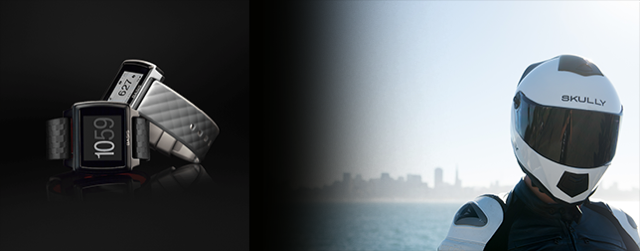It is not all peaches and cream in the wearable tech world. Back in May, we made a short recap of companies that are no longer with us due to lack of funds, poor management skills or products simply not ready for the millennials. Recently we heard another two different stories from companies whose “game is over”.
Skully was a promising startup funded in 2013. After a successful Indiegogo campaign with $2,446,824 USD raised the San Francisco company has recently shut down all their operations. The question now is, what happened? Was the product too expensive for consumers to afford? Were the founders wasting the money of the backers? (Rumours says so) or was simply a nice product idea but difficult to produce? The startup’s troubles have been brewing for several months but it wasn’t until now when Skully’s board forced founders Marcus and Mitch Weller out of their own company. Days later most of the employees, were let go and website sales for Skully’s much-anticipated augmented reality helmet were shut off.
Again rumours say that the startup had run out of money and that a number of disputes, including the possibility of an acquisition, how the founders were spending money and several manufacturing issues, caused a rift to form between the founders and investors. Skully says it is now filing for Chapter 7 bankruptcy, which also means customers likely won’t be getting a refund on pre-orders for the $1500 AR helmet Skully was working on.
Another company in trouble is Basis, the Intel company recently made a safety recall of their Basis Peak watches. The reason why Basis is taking this risk measurement is due to the reports of overheating in their watches. In their website, you can read in several languages that the overheating of the Basis Peak watch could result in burns or blisters on the skin surface. They urge you to stop using your watch immediately and return it. But this is not the first time a known company has to recall a product…..Fitbit also had a safety recall of their Fitbit Force due to some allergic contact dermatitis back in 2014. Based on an investigation they conducted, they found out that users who experienced allergic contact dermatitis likely reacted either to very small levels of methacrylates, which were part of the adhesives used to manufacture Force or, to a lesser degree, nickel in the stainless steel casing.
It seems for some companies it is a total game over and for others like Fitbit a bump in the road. Truth to be told is that Fitbit already had a wide product range of wearables back in 2014 while Basis only had their Peak watches. We will need to wait to see if Basis can recover from this bump.












